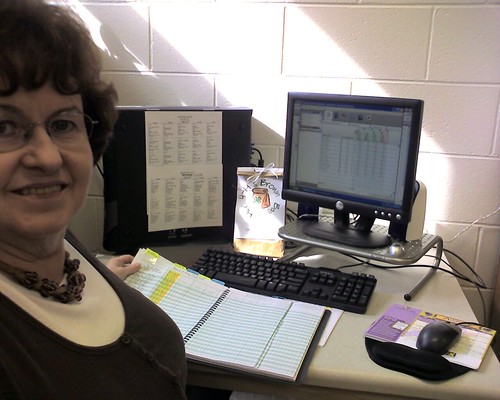
This post is slightly different from my others because it incorporates two articles and looks at the topic of homework, asking some serious questions about it from different points of view.
Cayusa via
Compfight cc
"Esmee is in the eighth grade at the NYC Lab Middle School for Collaborative Studies, a selective public school in the Chelsea neighborhood of Manhattan. My wife and I have noticed since she started there in February of last year that she has a lot of homework. We moved from Pacific Palisades, California, where Esmee also had a great deal of homework at Paul Revere Charter Middle School in Brentwood. I have found, at both schools, that whenever I bring up the homework issue with teachers or administrators, their response is that they are required by the state to cover a certain amount of material. There are standardized tests, and everyone—students, teachers, schools—is being evaluated on those tests. I’m not interested in the debates over teaching to the test or No Child Left Behind. What I am interested in is what my daughter is doing during those nightly hours between 8 o’clock and midnight, when she finally gets to bed. During the school week, she averages three to four hours of homework a night and six and a half hours of sleep.
Some evenings, when we force her to go to bed, she will pretend to go to sleep and then get back up and continue to do homework for another hour. The following mornings are awful, my daughter teary-eyed and exhausted but still trudging to school."
http://www.theatlantic.com/magazine/archive/2013/10/my-daughters-homework-is-killing-me/309514/
 4-6
4-6 via
Compfight cc
"Do American students have too much homework, or too little? We often hear passionate arguments for either side, but I believe that we ought to be asking a different question altogether. What should matter to parents and educators is this: How effectively do children’s after-school assignments advance learning?
The quantity of students’ homework is a lot less important than its quality. And evidence suggests that as of now, homework isn’t making the grade. Although
surveys show that the amount of time our children spend on homework has risen over the last three decades, American students are mired in the middle of international academic rankings: 17th in reading, 23rd in science and 31st in math, according to the
most recent results from the Program for International Student Assessment (PISA).
In a 2008
survey, one-third of parents polled rated the quality of their children’s homework assignments as fair or poor, and 4 in 10 said they believed that some or a great deal of homework was busywork. A
recent study, published in the Economics of Education Review, reports that homework in science, English and history has “little to no impact” on student test scores. (The authors did note a positive effect for math homework.) Enriching children’s classroom learning requires making homework not shorter or longer, but smarter."
http://blogs.kqed.org/mindshift/2013/09/how-can-we-make-homework-worthwhile/












